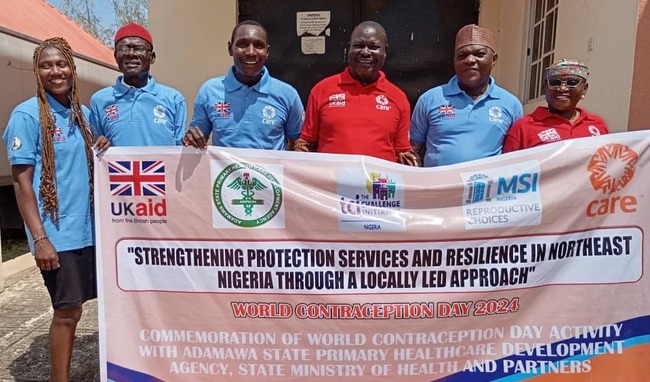
In commemoration of World Contraception Day (WCD), health experts have expressed the criteria role of contraception in empowering individuals to take control of their reproductive health and future.
Prof. Josiah Mutihir of Jos University Teaching Hospital (JUTH, Jos at a Webinar hosted by Development Communications Network (DevComs) with support from The Challenge Initiative (TCI, Nigeria), stated this.

Prof. Mutibir who is one of the resource persons at webinar with the theme “Breaking Barriers: Advancing Access to Family Planning in Resource-Limited Settings” the experts emphasized the need for Nigeria to address unbridled procreation that has led the country and its citizens to varied hardships over the years.
Noting that despite years of global celebrations aimed at raising awareness, Nigeria continues to face significant barriers in family planning.
Mutihir, along with other leading health professionals, at the Webinar emphasises that expanding access to contraception is key to improving health outcomes, reducing maternal mortality, and ensuring young Nigerians can make informed decisions about their reproductive futures.
This year’s theme highlights the importance of diverse contraceptive choices, especially in resource-limited settings like Nigeria, where cultural, economic, and logistical challenges continue to hinder access to essential reproductive health services, he said.
World Contraception Day serves as a platform for sensitizing the public on contraception—what it is, its benefits, and how individuals can access it. While awareness levels are high, with over 90% of both men and women in Nigeria knowledgeable about contraception, the usage rate remains alarmingly low at just 17%.
According to experts, Nigeria continues to grapple with an unmet need for contraception at 24.8%, revealing a gap between knowledge and access to effective family planning methods.
Mutihir emphasises that options create choices, and choices are key to empowering individuals to plan their families and futures.
From natural family planning methods to hormonal contraceptives, intrauterine devices, and permanent solutions, various contraceptive options exist, but access remains a pressing issue, particularly in underserved areas of Nigeria.
Stressing that Nigeria’s Contraceptive Prevalence Rate (CPR) has shown minimal improvement over the years despite the significant resources invested by organisations and projects.
Prof. Mutihir points out several barriers preventing widespread contraceptive use, including:
Poor funding from national, state, and local government authorities.
Commodity stock-outs and limited availability of contraceptive methods.
Untrained healthcare providers and biases in service provision.
Inadequate facilities and poor access to contraceptive services, especially in rural areas add that cultural, religious, and political influences, further complicate efforts to promote contraception.
Lovina Emole, a participant emphasised the significant challenge posed by limited government funding for reproductive health programs.
The media, professional bodies, and NGOs have been charged to continue pushing for policies that promote access to contraception and challenge societal norms that hinder family planning.
While private sector involvement in expanding access to affordable contraceptives, particularly in resource-limited settings was also emphasized
As well as a comprehensive education on reproductive health and informed decision-making in empowering young people.
Isaac Adamu from Plateau emphasised the importance of male involvement in reproductive health decisions, suggesting that Family Planning Champions can be crucial in influencing informed choices.
These the experts said will go beyond improving individual health and also increased contraceptive use thereby reducing maternal and infant mortality rates as well as improving socio-economic conditions, educational potential, and financial development for women and families.
READ MORE FROM: NIGERIAN TRIBUNE







